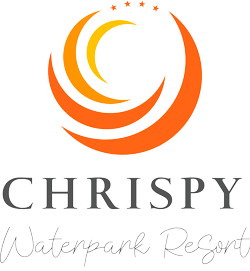If you’re planning a trip to Greece, you might be wondering, “What are the most useful Greek words to know when traveling to Greece“? While many locals, especially in tourist areas, speak English, knowing a few Greek phrases goes a long way. It shows respect, helps you connect with people, and can make your experience more authentic. Plus, it’s fun to surprise locals with your effort!
In this blog, we’ll cover the most helpful Greek words and phrases for travelers, from greetings to ordering food, so you can enjoy your holiday with confidence.
Why Learn a Few Greek Words During Your Visit?
First of all, Greek hospitality—filoxenia—is world famous. Locals deeply appreciate it when visitors try to speak even a little Greek. A simple “efharistó” (thank you) often brings a big smile. Using local words not only helps you get by more easily in shops, restaurants, or taxis but also creates instant connections. It turns an ordinary transaction into a warm exchange.
Essential Greek Words for Everyday Use
1. Greetings and Politeness
Kaliméra (kah-lee-MEH-rah) = Good morning
Kalispéra (kah-lee-SPARE-ah) = Good evening
Kalinyhta (kah-lee-NEEKH-tah) = Good night
Yassas (YAH-ssas) = Hello / Goodbye (polite or plural)
Parakaló (pah-rah-kah-LOH) = Please / You’re welcome
Efharistó (eff-hah-ree-STOH) = Thank you
Signómi (see-GHNO-mee) = Excuse me / I’m sorry
These are the basics that you’ll use daily, whether greeting hotel staff or thanking a restaurant server.
2. Ordering Food & Drinks
Dining is a highlight of any Greek holiday, so a few key words help:
Neró (neh-ROH) = Water
Kafés (kah-FEHS) = Coffee
Krasi (krah-SEE) = Wine
Psári (psa-REE) = Fish
Kréas (KREH-ahs) = Meat
Logariasmós (loh-ghah-ree-az-MOS) = Bill / Check
A polite way to order is: Tha íthela… (tha EE-the-la) = “I would like…”
3. Getting Around
If you’re exploring by taxi, bus, or car, these words will come in handy:
Póso kostízei? (POH-soh koh-STEE-zee) = How much does it cost?
Pou ine…? (POO EE-neh) = Where is…?
Leoforeío (leh-oh-fo-REE-oh) = Bus
Aerodrómio (ah-eh-roh-DRO-mee-oh) = Airport
4. At the Shops & Markets
Shopping in Greece is a treat, especially in local markets. Useful words include:
Tími (tee-MEE) = Price
Fthino (fth-ee-NOH) = Cheap
Akrívo (ah-KREE-voh) = Expensive
Nai (neh) = Yes
Ohi (OH-hee) = No
Tips for Using Greek Words Confidently
- Don’t worry about pronunciation perfection. Locals truly appreciate the effort more than accuracy, and even if you make small mistakes, you’ll almost always be met with a smile.
- Start with greetings and thank-yous. These are the simplest and most impactful words, and they can completely impact your interactions! From ordering in a café to asking for directions.
- Listen closely when locals respond. Greeks often repeat the word back naturally in conversation, which is a great chance to catch the correct pronunciation and improve as you go.
- Write down phrases on your phone or a small card for easy access when offline. It’s especially helpful on islands or in villages where you might not always have strong internet service.
- And finally, be confident and have fun with it. Learning a few Greek words is not about speaking perfectly but about showing respect for the culture. Most people will encourage you, and some might even teach you a few extra phrases along the way. Who knows, you might return home with more Greek in your vocabulary than you expected!
Conclusion
So, what are the most important Greek words to know when traveling to Greece? Simple greetings, polite expressions, and everyday essentials like ordering food or asking for directions will make your trip smoother and far more enjoyable. You don’t need to be fluent! Just a handful of words is enough to bring smiles and create memorable connections.
Next time you visit Greece, mention a few local words, and you’ll experience the warmth of Greek hospitality on a whole new level.
Check out our other blog posts for guides, local highlights, and family vacation ideas in Crete and beyond.
Follow us on social media for the latest resort updates and a behind-the-scenes look at life at Chrispy Waterpark Resort.
Frequently Asked Questions (FAQs)
1. Do I need to speak Greek to travel in Greece?
No, most people in tourist areas speak English. But knowing a few Greek words makes your experience friendlier and more authentic.
2. What’s the single most useful Greek word to learn?
Efharistó (thank you). It’s polite, easy to remember, and always appreciated.
3. How hard is Greek to pronounce?
It may seem tricky at first, but most travel phrases are short and simple. Locals will happily help you with pronunciation.
4. Should I learn the Greek alphabet?
Not necessary for short trips, but recognizing a few letters (like Π = P, Λ = L) helps with street signs.
5. Can kids learn Greek words easily?
Yes! Words like yassas (hello) or kaliméra (good morning) are fun for children to use and often earn them big smiles.







